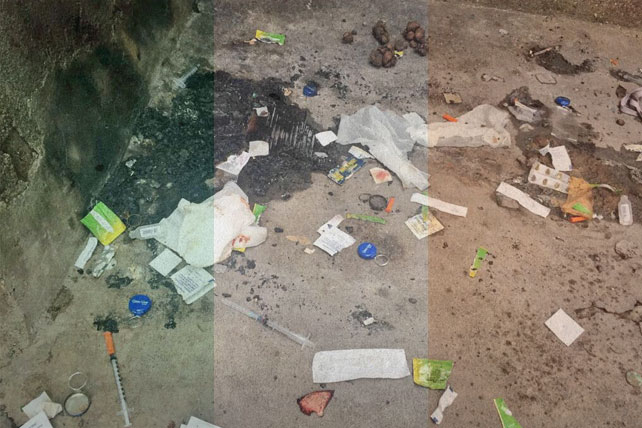People with problematic drug use should be provided with care and treatment, rather than being criminalised, said Daragh Connolly, the President of the Irish Pharmacy Union (IPU).
Speaking at the National Pharmacy Conference in Dublin on May 6, Connolly proposed a motion that people “suffering from drug dependence” should be provided with “access to comprehensive treatment, including psychosocial support, pharmacotherapy and the prevention and management of associated health problems such as HIV, tuberculosis, viral hepatitis, mental health disorders, and drug overdose.”
Connolly noted that members of the IPU – Ireland’s representative body for community pharmacists which boasts over 2,200 pharmacist members – could play important roles in the provision of such care.
“Pharmacists should be at the vanguard of this changing approach”, he affirmed. “We already provide opiate substitution using methadone; we provide needle exchange services in areas of need; we provide a crucial point of contact with healthcare for those whose problems have made them outsiders in our society. We want to do more”.
Tony Duffin – CEO of the Ana Liffey Drug Project, an Irish organisation working to reduce the harms of problematic drug use – praised the IPU for lending their support to drug law reform. "This is significant support for a future national policy of decriminalisation of drugs for personal use from Ireland's Pharmacists – a trusted group of health care professionals," he said.
Connolly’s remarks are particularly timely as they come amid an on-going crisis with problematic opioid use in Ireland. As of 2016, there were around 3,000 people who inject drugs in Dublin alone, with about 400 injecting publicly, according to the Irish Times. On average, one person dies of a drug overdose every day in Ireland, according to Duffin.
Currently, under Ireland's Misuse of Drugs Act (1977), an individual found in possession of any illegal drug – including heroin – may be punished by a prison sentence.
Such legislation was implemented to ostensibly dissuade people from using illegal drugs, however, the criminalisation of people who use drugs problematically can actually increase the stigma they face, thereby dissuading them from seeking help or treatment. This stigma may also prevent people who use drugs from accessing safe and sterile equipment, thereby increasing the transmission of infectious diseases.
Kathy Maher, who was President of the IPU until April 2016, seconded Connolly’s motion, citing Portugal’s success in its decriminalisation of personal drug possession.
Portugal, which decriminalised the personal possession of all drugs in 2001, “has seen the harm reducing benefits of this approach, such as an increase in the numbers of people who misuse drugs seeking help for their addiction, a fall in the number of HIV/AIDS cases, and significant savings in law enforcement and court service resources”, Maher said.
Maher noted that the Portuguese approach was significantly different from that of Ireland, as it allows people found in possession of drugs to avoid criminalisation; "if the person is found with 10 days’ supply or less for personal use, they can be required to report to a Committee for Addiction Dissuasion” instead of being prosecuted, she noted.
The former Minister of State for Drugs, Aodhán Ó Ríordáin, backed the decriminalisation of small quantities of drugs, although the stance of his successor – Catherine Byrne – is potentially promising for reformists, but less clear-cut. The new Irish drug strategy, which Byrne is set to launch in the coming months, proposes the creation of a group to "consider the approaches taken in other jurisdictions to the possession of small quantities of drugs for personal use", the Irish Times reports.
If this group takes the recommendations of the IPU into account, then the decriminalisation of personal drug use, and the treatment of drug use as a health issue, may not be far off in Ireland.


